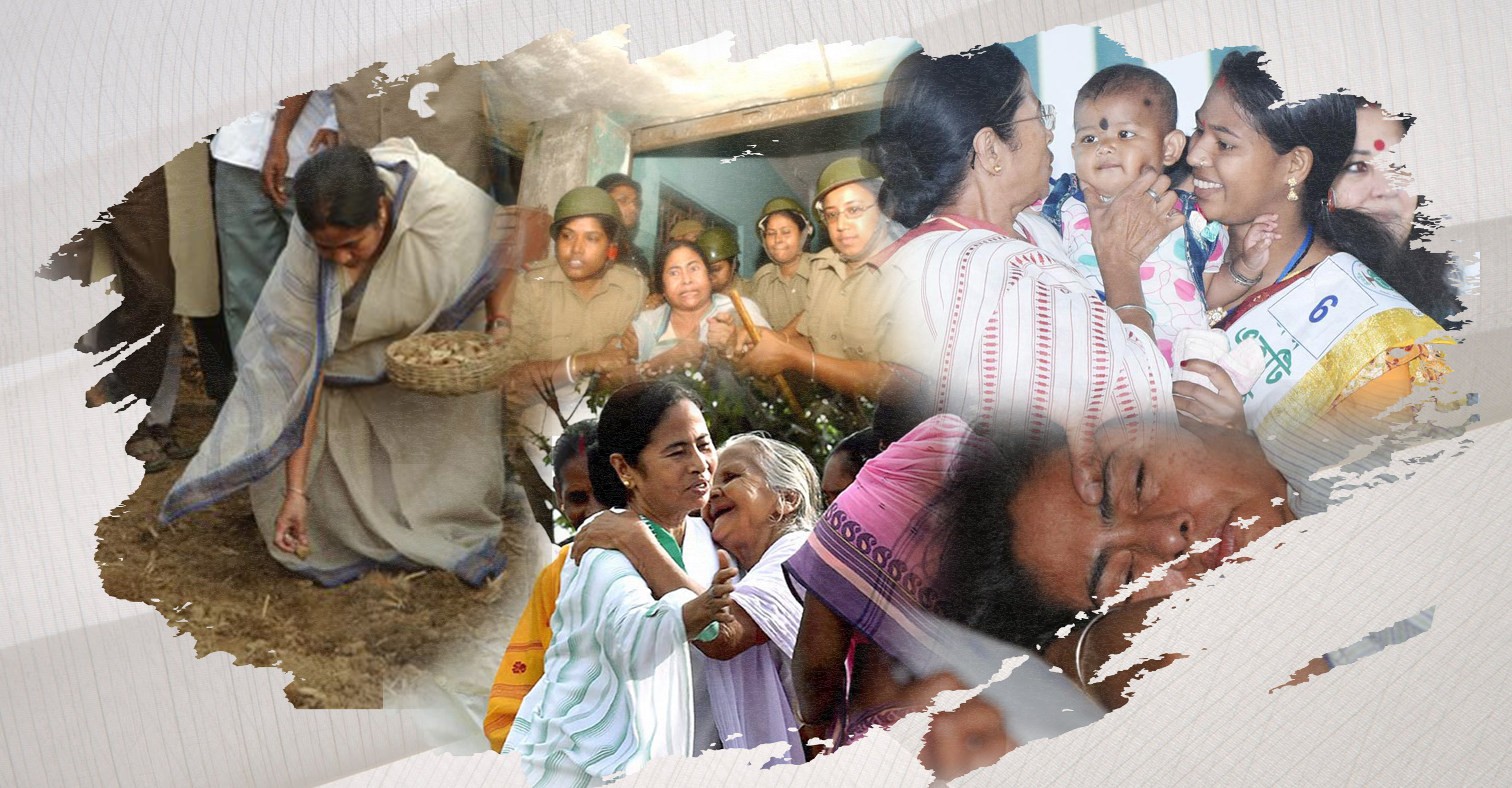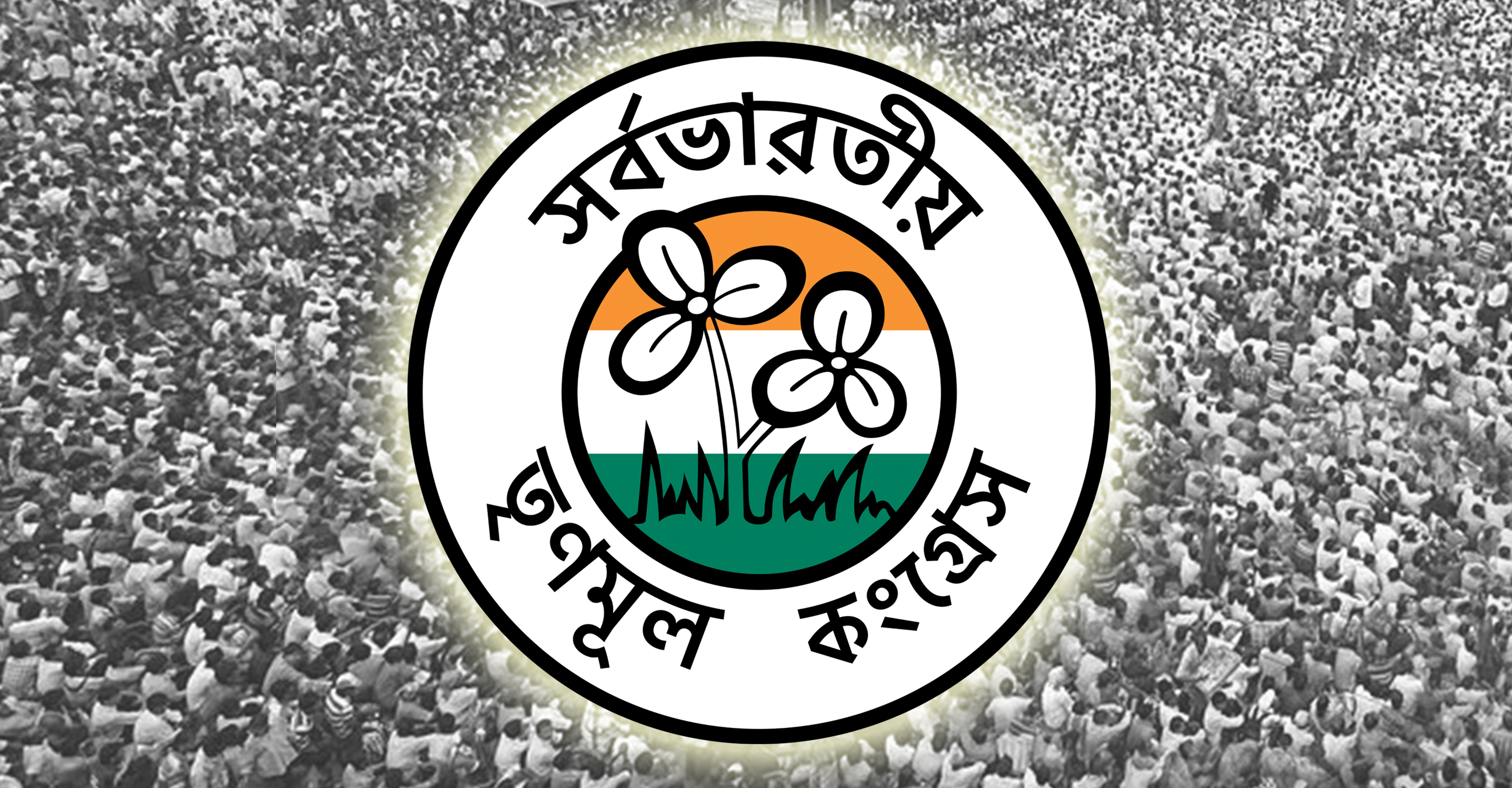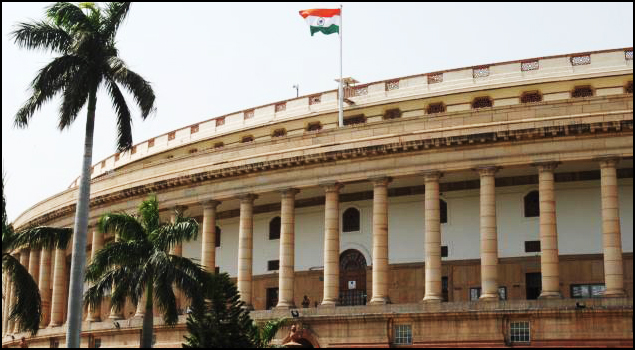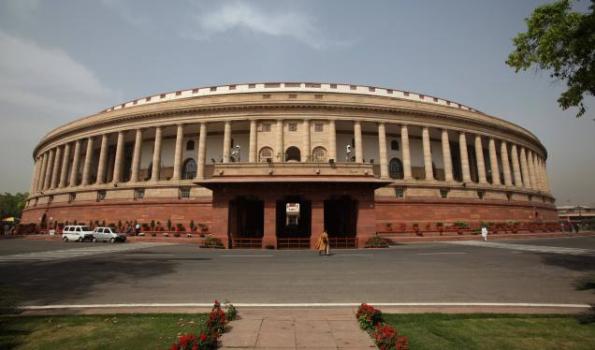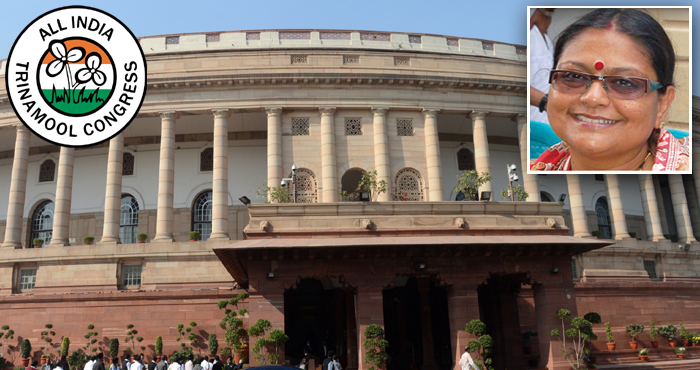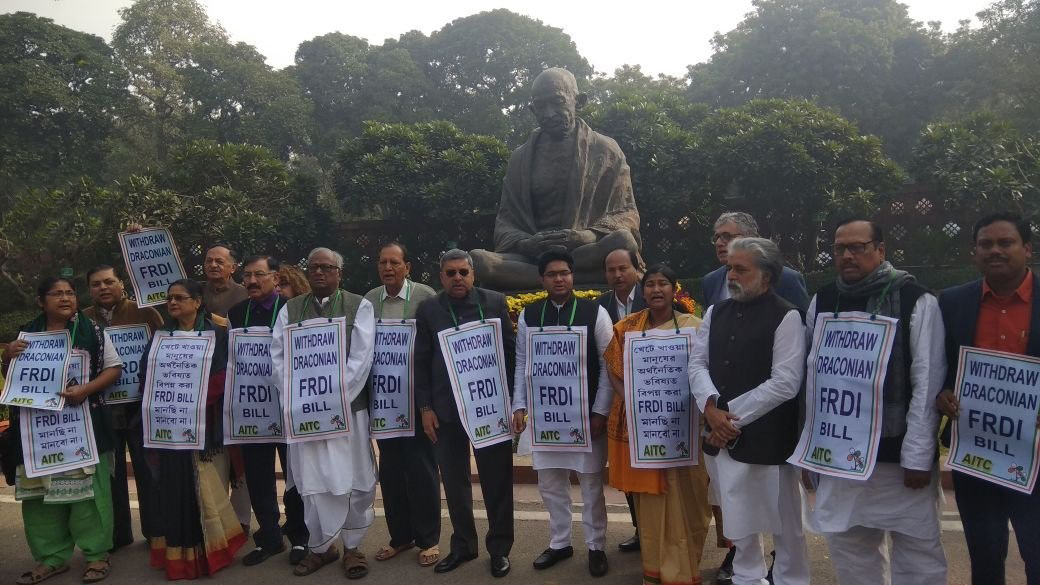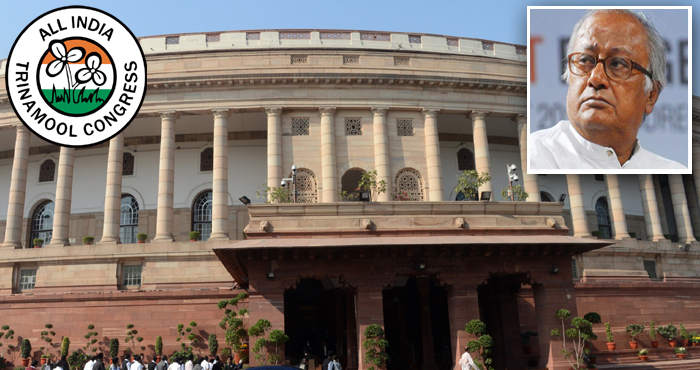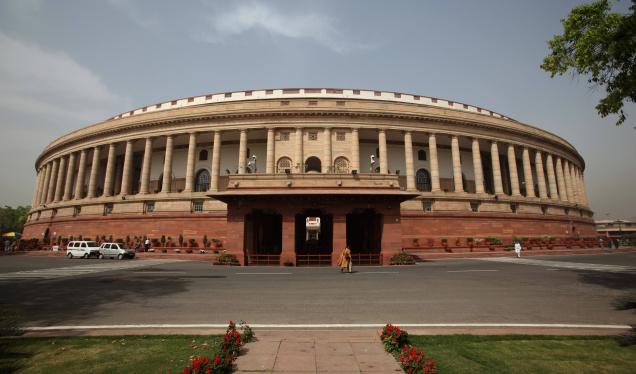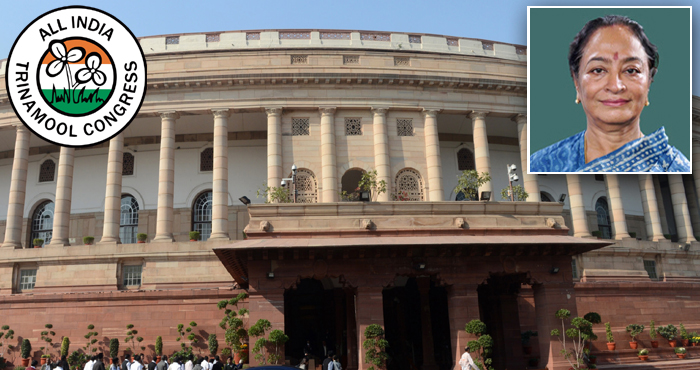It is now 20 years since All India Trinamool Congress was formed. From a small regional party in 1998, when it was formed under the leadership of the firebrand leader, Mamata Banerjee, Trinamool Congress is now a force to reckon with in national politics.
Over these 20 years, there have been numerous memorable moments, and it would not be a feasible idea to list all of them here. However, let us take a look at 20 crucial events along the timeline of 20 years, events which have proved to all and sundry that Trinamool Congress always strives to serve the common people, come hell or high weather.
1. Formation of the party
Trinamool Congress was founded on January 1, 1998, and Mamata Banerjee was chosen as the leader of the party. In that year too, the party fought the general elections for the first time and significantly, won eight seats in the Lok Sabha from Bengal.
2. Railways Minister
After the 1999 general election, Mamata Banerjee became the Union Railways Minister, which she remained till 2001.
3. Winning the Kolkata Municipal Corporation (KMC)
In 2000, Trinamool Congress fought in the election for the Kolkata Municipal Corporation for the first time, and won overwhelmingly. For the first time, the Kolkata Mayor was a Trinamool candidate.
4. First Assembly elections
In 2001, Trinamool Congress fought the State Assembly election for the first time, and won in 60 seats.
5. Keshpur and Garbeta massacres
On January 4, 2001, Trinamool workers were massacred in Chhoto Angariya by the workers of CPI(M).
6. Jago Bangla
In 2004, the official mouthpiece of All India Trinamool Congress, Jago Bangla was first published. It is a weekly publication.
7. Singur Movement
In 2006, the then State Government forcibly acquired 1,000 acres of prime farmland from farmers in Singur for a car factory. Trinamool Congress, led by Mamata Banerjee, started a huge movement to compel the government to return the plots to the unwilling farmers.
8. 26-day hunger strike
Trinamool Congress Chairperson Mamata Banerjee undertook a hunger strike, which lasted for 26 days, against the forcible acquisition of 1,000 acres of farmland in Singur for a car factory by Tata Motors.
9. Nandigram Movement
In a re-run of Singur, in 2007 in Nandigram, the then State Government, tried to forcibly acquire agricultural land. A movement built up, again led by Trinamool Congress. On March 14 of that year, police fired indiscriminately on protesters, killing 14 people.
10. Panchayat election win
In the 2008 Panchayat election, Trinamool Congress put up a great show, forming the Zilla Parishad in East Midnapore and South 24 Parganas districts.
11. Lok Sabha win
In the 2009 general elections, Trinamool Congress won 19 of the 42 Lok Sabha seats from Bengal.
12. Second KMC win
In 2010, Trinamool Congress won the Kolkata Municipal Corporation for a second time, winning handsomely.
13. Assembly election win
In 2011, Trinamool Congress won a historic Assembly election, bringing to an end 34 years of Left Front rule. It formed the first Ma-Mati-Manush Government in Bengal under the leadership of Mamata Banerjee.
14. Decimation of Left in Panchayat polls
In 2013, Trinamool Congress won 13 out of 17 Zila Parishads in the State, decimating the Left Front completely.
15. Winning majority of the seats in Lok Sabha from Bengal
Achieving another milestone, in 2014, Trinamool Congress won 34 of the 42 seats in the Lok Sabha election, which is currently the fourth highest in the Lok Sabha.
16. 33% female MPs in Lok Sabha
In the 2014 election for the Lok Sabha, Trinamool Congress hit another milestone – 12 women became Members of Parliament (MP).
17. Victory in Municipal polls
In 2015, Trinamool Congress retained the Kolkata Municipal Corporation, as well as winning 77 other civic body elections. Trinamool Congress has thus proved its name – ‘trinamool’ means ‘grassroots’ – as it now has holds power in the majority of elected bodies in Bengal at all levels, and has brought about a golden reign of governance.
18. Second Assembly win
In 2016, Trinamool Congress won the Assembly election for a second consecutive time, this time more overwhelmingly than ever. The party, under the strident leadership of Mamata Banerjee, won 211 of the 294 seats, decimating the opposition with the power of the people. Mamata Banerjee became the Chief Minister for a second consecutive term.
19. Singur land returned
After the historic judgment by Supreme Court on August 31, 2006, the land acquisition at Singur was termed unconstitutional. Fulfilling her promise, Mamata Banerjee returned the land deeds to farmers in Singur in September.
20. National party
In recognition of the growing influence that Trinamool Congress is having in national politics, in 2016, the Election Commission recognised the party as a national party. Trinamool Congress thus became the seventh national party.
২০ বছরের স্মৃতি রোমন্থন
দেখতে দেখতে সর্বভারতীয় তৃণমূল কংগ্রেস ২০ বছর পেরিয়ে গেল। অনেক উত্থান পতনের মধ্যে দিয়ে বাংলার রাজনীতিতে নিজের জায়গা পাকাপাকি ভাবে তৈরী করে নিয়েছে তৃণমূল।
শুধু তাই নয়, বিগত সাড়ে ছয় বছর ধরে বাংলার শাসনভারে গ্রহণ করে মা,মাটি, মানুষের সেবায় নিমজ্জিত তৃণমূল। বাংলার পাশাপাশি দেশের রাজনীতিতেও নিজের গুরুত্ব বুঝিয়ে দিয়েছে মমতা বন্দ্যোপাধ্যায়ের নেতৃত্বাধীন তৃণমূল কংগ্রেস, প্রায় নিজের জন্মলগ্ন থেকেই।
২০ বছরে এই দলের ইতিহাসে আছে অগণিত স্মরণীয় মুহূর্ত। দেখে নেওয়া যাক সেরকমই ২০টি অবিস্মরণীয় মুহূর্ত।
১. দল গঠন
১৯৯৮ সালের ১লা জানুয়ারি তৃণমূল কংগ্রেস দলটি তৈরী হয়। মমতা বন্দ্যোপাধ্যায় দলের নেত্রী নির্বাচিত হন। প্রথম বার লোকসভা ভোটে অংশ নিয়ে ৮টি আসনে জয়লাভ করে এই দল।
২. রেল মন্ত্রীত্ব
১৯৯৯ সালের পুনরায় লোকসভা নির্বাচন হয়। ১৯৯৯ সালের লোকসভা নির্বাচনে মমতা বন্দ্যোপাধ্যায় ভারতবর্ষের রেল মন্ত্রী হন, তিনি ২০০১ সাল পর্যন্ত রেল মন্ত্রী ছিলেন।
৩. কলকাতা পুরসভা জয়
২০০০ সালে কলকাতা পুরসভা ভোটে অংশগ্রহণ করে বিপুল ভোটে জয়লাভ করে তৃণমূল। এই প্রথম কলকাতার মহানাগরিক হন এক তৃণমূল সদস্য।
৪. প্রথম বিধানসভা ভোট
২০০১ সালে প্রথমবার তৃণমূল কংগ্রেস বিধানসভা ভোটে অংশগ্রহণ করে ও ৬০টি আসনে বিজয়ী ঘোষিত হয়।
৫. কেশপুর ও গড়বেতার নারকীয় হত্যাকান্ড
২০০১ সালের ৪ঠা জানুয়ারী মেদিনীপুর জেলার ছোট আঙারিয়ায় তৃণমূল কর্মীদের কুপিয়ে খুন করে হার্মাদরা।
৬. জাগো বাংলা
২০০৪ সালে তৃণমূল কংগ্রেসের মুখপত্র ‘জাগো বাংলা’ প্রথম প্রকাশিত হয়। এটি একটি সাপ্তাহিক পত্রিকা।
৭. সিঙ্গুর আন্দোলন
২০০৬ সালে টাটা কোম্পানির গাড়ির কারখানা তৈরীর জন্য সিঙ্গুরের ১০০০ একর জমি বলপূর্বক অধিগ্রহণ করে নেয় তৎকালীন সরকার। অনিচ্ছুক কৃষকদের জমি ফিরিয়ে দেওয়ার দাবীতে আন্দোলন শুরু করেন মমতা বন্দ্যোপাধ্যায়।
৮. ২৬ দিনের অনশন
সিঙ্গুরের অনিচ্ছুক কৃষকদের স্বার্থে এবং গ্রামবাসীদের ওপর সিপিএম হার্মাদবাহিনীর নারকীয় অত্যাচারের প্রতিবাদে তৃণমূল কংগ্রেস নেত্রী ধর্মতলায় অনির্দিষ্টকালীন অনশন শুরু করেন। ২৬ দিন পর, মাননীয় রাজ্যপাল ও বিদ্বজ্জনদের অনুরোধে অনশন প্রত্যাহার করেন তিনি।
৯. নন্দীগ্রাম আন্দোলন
সিঙ্গুরের মতো নন্দীগ্রামেও বেসরকারি কেমিক্যাল হাব তৈরী করার জন্য অনিচ্ছুক কৃষকদের থেকে বলপূর্বক জমি ছিনিয়ে নিতে বিজ্ঞপ্তি জারি করে তৎকালীন সরকার। তৃণমূল কংগ্রেসের নেতৃত্বে শুরু হয় আন্দোলন। ১৪ই মার্চ ২০০৭ সালে পুলিশ নির্বিচারে গুলি চালিয়ে (সরকারি হিসেবে) ১৪ জন গ্রামবাসীর প্রাণ কেড়ে নেয়।
১০. পঞ্চায়েত জয়
২০০৮ সালে পঞ্চায়েত নির্বাচনে অংশ নিয়ে সারা রাজ্যে বিপুল ভোটে জয়লাভ করে তৃণমূল কংগ্রেস। ব্যাপক ফল করে তৃণমূল কংগ্রেস। পূর্ব মেদিনীপুর ও দক্ষিণ ২৪ পরগনা জেলা পরিষদ দখল করে তৃণমূল।
১১. লোকসভায় জয়
২০০৯ সালে বামবিদায়ের ঘন্টা বাজিয়ে লোকসভা নির্বাচনে ব্যাপক জয়লাভ করে তৃণমূল। রাজ্যের ৪২টি আসনের মধ্যে তৃণমূল কংগ্রেস ১৯টি আসনে বিজয়ী হয়।
১২. পুরসভা জয়
২০১০ সালে বিপুল জনসমর্থন নিয়ে পুনরায় কলকাতা পুরসভা দখল করে তৃণমূল কংগ্রেস।
১৩. বিধানসভা জয়
৩৪ বছরের অপশাসন ঘুচিয়ে, বাম সরকারকে পর্যুদস্ত করে মা মাটি মানুষের আশীর্বাদ নিয়ে প্রথমবার মমতা বন্দ্যোপাধ্যায়ের নেতৃত্বে তৃণমূল কংগ্রেস সরকার বাংলার শাসনভার গ্রহণ করে।
১৪. জেলা পরিষদ জয়
২০১৩ সালে বামেদের কার্যত নিশ্চিহ্ন করে দিয়ে পঞ্চায়েত নির্বাচনে ১৩টি জেলা পরিষদ জয় করে তৃণমূল কংগ্রেস।
১৫. লোকসভা নির্বাচনে বিপুল জয়
২০১৪ সালের লোকসভা নির্বাচনে রাজ্যের ৪২টি আসনের মধ্যে ৩৪টিতে জয়লাভ করে তৃণমূল কংগ্রেস। দেশের চতুর্থ বৃহত্তম দল হিসেবে উঠে আসে তৃণমূল।
১৬. ৩৩ শতাংশ মহিলা সাংসদ
২০১৪ সালের তৃণমূলের নির্বাচিত লোকসভার সাংসদদের মধ্যে ৩৩ শতাংশ মহিলা সাংসদ। সংসদে মহিলা সংরক্ষণ বিল বহু বছর ধরে আটকে। তা সত্ত্বেও মমতা বন্দ্যোপাধ্যায় বুঝিয়ে দিলেন ইচ্ছে থাকলে উপায় হয়।
১৭. পুরসভা জয়
২০১৫ সালে কলকাতা পুরসভা সহ রাজ্যের ৭৮টি পুরসভা নির্বাচনে বিপুল জনসমর্থন নিয়ে জয়লাভ করে তৃণমূল কংগ্রেস।
১৮. দ্বিতীয়বার বিধানসভা জয়
২০১৬ সালে ২৯৪ আসনের মধ্যে ২১১ আসন জিতে দ্বিতীয় বারের জন্য বাংলার শাসনভার গ্রহণ করে মমতা বন্দ্যোপাধ্যায়ের নেতৃত্বাধীন তৃণমূল কংগ্রেস।
১৯. সিঙ্গুরে জমি ফেরত
কথা দিয়ে কথা রাখলেন মুখ্যমন্ত্রী মমতা বন্দ্যোপাধ্যায়। ৩১ আগস্ট, ২০১৬ তে সুপ্রিম কোর্ট ঐতিহাসিক রায়ে সিঙ্গুরের জমি অধিগ্রহণকে অসাংবিধানিক আখ্যা দেয়। এরপর মমতা ববন্দ্যোপাধ্যায় সেপ্টেম্বর মাসে সিঙ্গুরের কৃষকদের জমি ফিরিয়ে দেন। সিঙ্গুর ফিরে আসে শস্যের ভাণ্ডারে।
২০. সর্বভারতীয় দলের স্বীকৃতি
২০১৬ সালে দেশের সপ্তম সর্বভারতীয় রাজনৈতিক দল হিসেবে স্বীকৃতি পায় তৃণমূল কংগ্রেস।

